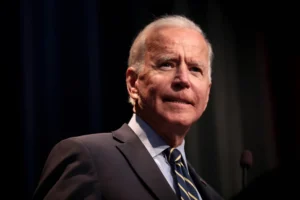Privacy Breach: Elon Musk Reveals Why You Shouldn’t Rely on WhatsApp
Elon Musk, the tech mogul and founder of Tesla and SpaceX, recently warned users to be wary of WhatsApp, citing the potential for privacy breaches. WhatsApp, a popular messaging app owned by Facebook, has come under fire in recent years for its lack of security and privacy features. In this article, we’ll explore why Musk believes users should be cautious when using WhatsApp and what steps they can take to protect their data.
Elon Musk Warns of WhatsApp Privacy Breach
WhatsApp has been using the microphone in the background, while I was asleep and since I woke up at 6AM (and that's just a part of the timeline!) What's going on? pic.twitter.com/pNIfe4VlHV
— Foad Dabiri (@foaddabiri) May 6, 2023
Elon Musk, the founder of Tesla and SpaceX, has recently warned of a potential privacy breach on WhatsApp. In a tweet, Musk stated that the popular messaging app was “not secure” and advised users to switch to Signal, a secure messaging app.
The warning comes after WhatsApp announced that it would be updating its terms of service and privacy policy, which would allow it to share user data with its parent company, Facebook. The changes, which will take effect on February 8th, have sparked concern among users about their privacy and security.
Musk’s warning is the latest in a series of warnings from tech experts and privacy advocates about the potential risks of using WhatsApp. In particular, they have raised concerns about the company’s ability to access user data, which could be used for targeted advertising or other purposes.
WhatsApp has defended its changes, stating that it does not share user data with Facebook for advertising purposes. However, the company has not provided any further details about how it will use the data it collects.
In light of these concerns, users are advised to consider their options carefully before agreeing to the new terms of service. Those who are concerned about their privacy may want to switch to a secure messaging app such as Signal or Telegram.
Elon Musk Why You Shouldn’t Rely on WhatsApp for Privacy
With latest version of app, you can DM reply to any message in the thread (not just most recent) and use any emoji reaction.
— Elon Musk (@elonmusk) May 9, 2023
Release of encrypted DMs V1.0 should happen tomorrow. This will grow in sophistication rapidly. The acid test is that I could not see your DMs even if…
Recent reports have revealed that WhatsApp, the popular messaging app owned by Facebook, is not as secure as many users thought. Despite its end-to-end encryption, WhatsApp has a number of security flaws that make it an unreliable platform for those seeking privacy.
WhatsApp’s encryption is not as strong as advertised. The encryption keys are stored on the company’s servers, meaning that the company can access the messages sent through the app. This means that the company can access messages even if they are encrypted.
Furthermore, WhatsApp is vulnerable to man-in-the-middle attacks. This means that hackers can intercept messages and decrypt them without the sender or receiver being aware. This is especially concerning for those who use the app to send sensitive information.
Finally, WhatsApp is owned by Facebook, which has a history of data breaches and privacy violations. Facebook’s track record does not inspire confidence in the security of WhatsApp.
For those who value their privacy, it is important to be aware of the security flaws of WhatsApp. While the app may be convenient, it is not a reliable platform for secure communication. Those who need to send sensitive information should look for other, more secure options.
How WhatsApp’s Privacy Breach Could Impact Your Data
The recent news of a privacy breach on WhatsApp, the popular messaging app, has caused concern among users. The breach, which was discovered by a security researcher, exposed the personal data of users to third-party companies.
The breach was caused by a vulnerability in the app’s software that allowed malicious actors to access the user’s contact list, profile information, and even messages. This breach could have a significant impact on the data of users.
The breach could lead to users’ personal data being used for malicious purposes. This could include identity theft, financial fraud, and even targeted advertising. In addition, users’ private conversations could be exposed to third-party companies, which could be used to manipulate users or spread misinformation.
WhatsApp has taken steps to address the issue, including releasing a patch to fix the vulnerability and implementing additional security measures. However, users should still be wary of the potential risks posed by the breach.
It is important for users to take steps to protect their data. This includes using strong passwords, enabling two-factor authentication, and avoiding clicking on suspicious links. Additionally, users should be aware of the potential risks posed by using messaging apps and be sure to read the privacy policies of any app they use.
The WhatsApp privacy breach is a reminder of the importance of data security and the need to be vigilant when it comes to protecting personal information.
How to Protect Yourself from WhatsApp Privacy Breaches
As WhatsApp continues to be one of the most popular messaging apps in the world, it is important to take steps to protect yourself from potential privacy breaches. Here are some tips to help you stay safe:
1. Enable two-factor authentication: To protect your account, enable two-factor authentication. This will require you to enter a code sent to your phone number each time you log in.
2. Be aware of suspicious links: Be cautious of any suspicious links sent to you via WhatsApp. If you are unsure of the source, do not click on it.
3. Check your privacy settings: Make sure your privacy settings are set to the highest level. This will ensure that only your contacts can see your profile photo, status, and other information.
4. Avoid sharing sensitive information: Do not share sensitive information such as bank account numbers, passwords, or credit card numbers over WhatsApp.
5. Use a secure Wi-Fi connection: Whenever possible, use a secure Wi-Fi connection when using WhatsApp. This will help protect your data from being intercepted.
By following these tips, you can help protect yourself from potential WhatsApp privacy breaches. It is important to be aware of the risks and take steps to protect your data.
What You Need to Know About WhatsApp’s Privacy Breach Vulnerability
A recent security breach of WhatsApp, the popular messaging app, has left millions of users vulnerable to potential privacy violations. According to reports, the vulnerability was discovered by security researchers and could allow hackers to access private conversations and other data.
The breach was found to be caused by a bug in the app’s code that allowed hackers to inject malicious code into conversations. This code could then be used to gain access to a user’s data, including their contact list, photos, and messages.
WhatsApp has since released a patch to fix the vulnerability, but it is important for users to be aware of the potential risks. Hackers could use the vulnerability to access sensitive information, such as financial details, passwords, and even private conversations.
It is also important to note that the vulnerability is not limited to WhatsApp. Other messaging apps, such as Facebook Messenger, Telegram, and Viber, could also be affected.
It is recommended that users take extra precautions when using messaging apps, such as using two-factor authentication and avoiding clicking on suspicious links. Additionally, users should be sure to update their apps regularly to ensure that any security patches are applied.
By taking the necessary steps to protect their data, users can help ensure that their conversations remain private and secure.
Conclusion
In conclusion, it is clear that relying on WhatsApp for private conversations may not be the best choice. As Elon Musk’s recent tweet shows, the messaging platform has serious security flaws that could potentially lead to a privacy breach. Therefore, users should be aware of the risks associated with using WhatsApp and consider other messaging services that prioritize security and privacy.
Excerpt
Elon Musk has warned users not to rely on WhatsApp for privacy, as the messaging app has recently suffered a major privacy breach. The tech mogul has urged users to switch to Signal, a more secure messaging platform, in order to protect their data and conversations from being accessed by third parties.




Average Rating